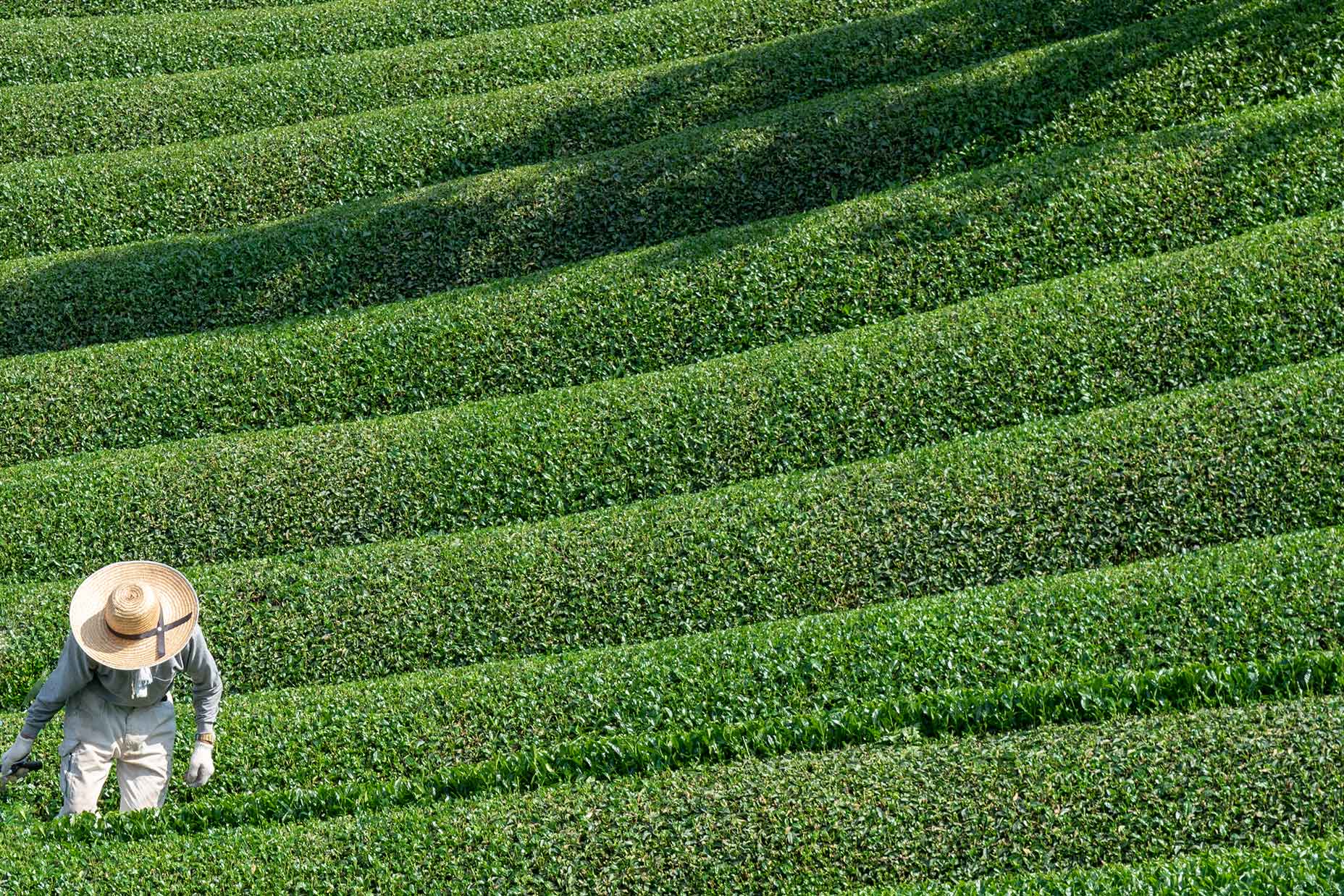In the world of food, organically grown produce is often (though by no means always) superior in color, taste, and nutrition. Not so with matcha, and here's why.
For us, it’s all about taste. While organic matcha farming in Japan has made great strides recently, and some of it is now quite tasty, organic matcha as a rule produces a weaker amino acids/umami profile compared to its conventionally grown brethren. Why would this be?
It has to do with how tencha (the tea leaves used to make matcha) is grown; that is to say, tencha spends the last, and most important, part of its life in shade so that the amino acid content of the plant can develop and remain intact when harvested. If it gets sunlight, those coveted amino acids that we’re after get converted, via photosynthesis, into catechins, a process that changes the taste from sweet and brothy to bitter and unpleasant.
The dilemma thus becomes: if a plant can’t get energy to grow from sunlight, from where does it get its energy? In matcha’s case, it gets its energy from fertilizers. It needs this added energy, since it’s not getting it from sunlight. And the bitter truth (so to speak) is that organic tea fields using organic fertilizers can’t, at least by today’s technologies and standards, give it enough energy to grow with maximum amino acid structure. It just doesn’t deliver enough nitrogen for the plant to develop the complex amino acids that give great matcha its unique and umami-driven taste profile.
That said, our farmers are hardly dumping industrial-strength fertilizers into their fields. They use very high-quality natural fertilizers (mostly fish meal and pure nitrogen), but they are not certified organic. The plant needs this added energy, since it’s not getting it from sunlight.
So this is why purely organic matcha grown only with organic fertilizers is actually inferior to conventionally grown matcha: purely organic fertilizers simply don’t have enough stored energy to create these ethereal, umami-packed, new-growth leaves in the absence of sunlight.
